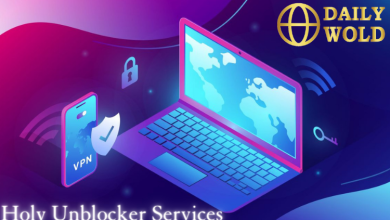Reasons You Should Know about Managed IoT Services

Managed IoT Cloud is an external IoT platform that allows you to shorten to succeed with relevant products. Instead of creating a platform from scratch, our customers can make the idea a reality in a matter of weeks. Managed cloud IoT not only collects and stores data from your connected devices but also provides tools to convert data into business value.
The benefits of the services provided by the Internet of Things can be easily identified. But it often does not solve vague problems. Complexity reduction is mandatory. But they should not decide alone. Functional connections come with a user-centric working model for your IoT complex architectures. For those who want to use IoT services, here are three important things to consider before building an idea.
Universal network coverage is technically impossible
While the idea that you do not need to provide your own infrastructure (e.g. base station) is attractive enough, it does mean that it is entirely dependent on the operator network. Beware of the “global reach” that IoT service providers often offer, because it is not really equivalent to ubiquitous connectivity.
There may be a roaming agreement to assist in connecting to supported networks as devices travel across borders. However, they do not guarantee that the connection is available everywhere or always reliable.
The scope is a complex function of the radio communication budget, base station/base station access and the associated device operating environment. Therefore, providing “complete” coverage to operators worldwide is difficult, if not impossible.
Read Also: A One time Read to Know Everything About Cryptocurrencies
If you take a closer look at the coverage map of any telecommunication providers in your country, you can easily spot many bugs in the network. You will always wonder what your programs are and where your devices are installed. The outer edge is in an urban setting, powered by a simple IoT infrastructure. However, in the case of industrial assets located in remote, underground areas and/or in a steel factory, this may not be the case.
Data privacy and ownership are a legitimate concern
Industrial consumers are turning to the Internet of Things to access previously unused data, which will change their behaviour and increase their competitiveness. Due to the business-critical nature of these data flows, any security breaches can cause serious financial and reputation.
If you are willing to run a campus or hybrid system to ensure security and compliance, and access connection may not fit your strategy.
In addition, adherence to strict data protection frameworks is usually a critical business requirement. As such, it is not surprising that many companies support cloud-based internal or hybrid IoT expansion to maintain complete data and security controls and minimize risks.
Network Uptime Are Under No Guarantee
When it comes to critical infrastructure and applications, companies always strive for 100% networking time, even in times of crisis. Among the services delivered by the IoT, the active network may be subject to unexpected interruptions due to physical or technical failure of the operator’s infrastructure. Even with a service level agreement that guarantees 99.9% of network uptime, the company still has had a drop in the last nine hours. In addition, because sensor data must be retrieved from the operator’s servers for the end of application use, companies run the risk of interfering with Internet access.




